How to Survive Being Pulled Over By The Police
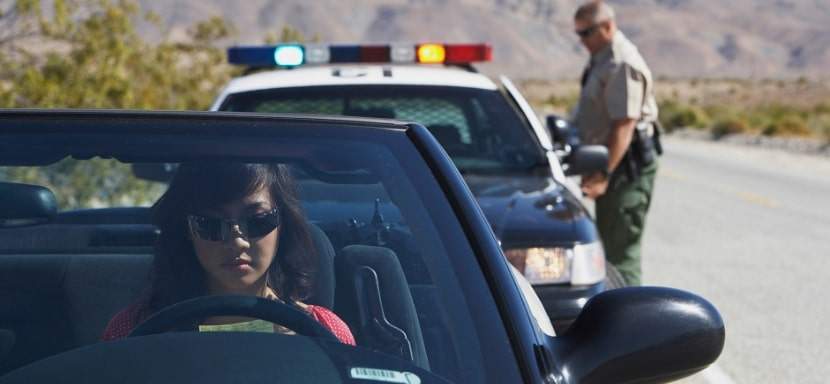
Traffic Stop Survival Tips That Work
Have you ever been flashed by those daunting red and blue lights? Keep your cool and freedom with these foolproof tips for handling a police stop like a pro.
Being pulled over by the police can feel like an unwanted cameo in a reality TV show: sudden spotlights, a rush of adrenaline, and all eyes on you. Handling the situation wisely can significantly influence the outcome of a minor oversight like a forgotten turn signal or something more serious.
This article will guide you through the essential steps to handle a police pull-over with dignity and safety. From recognizing the flashing lights in your rearview mirror to interacting confidently with the officer, we have practical tips to help you navigate this stressful encounter smoothly. So, stay calm and read on to master the art of the traffic stop.
Key Points
- Safely Pull Over: Signal and move to the side of the road promptly and safely, choosing a well-lit area if possible.
- Remain Calm and Polite: Keep your hands visible, usually on the steering wheel, and communicate respectfully with the officer.
- Know Your Rights: Be aware of your rights regarding searches and questions, and politely decline to consent to a search without a warrant.
10 Tips for Handling a Police Pull-Over
When you see those flashing lights in your rearview mirror, handling the situation calmly and smartly is essential.
Here are ten tips to help you manage a police pull-over effectively and safely:
- Pull Over Safely: Use your turn signal and move to the right side of the road as quickly and safely as possible.
- Turn Off Your Engine: Once stopped, turn off your engine, turn on the internal light at night, and keep your hands visible on the steering wheel.
- Remain Inside the Vehicle: Unless instructed otherwise, stay inside your car and wait for the officer to approach you.
- Be Polite and Respectful: Address the officer courteously, using “Officer” or “Sir/Madam” in your conversation.
- Provide Requested Documents: Have your license, registration, and proof of insurance ready, but wait to hand them over until the officer requests them.
- Avoid Sudden Movements: Keep your movements slow and deliberate to avoid alarming the officer.
- Do Not Admit Fault: Be cooperative but cautious with your words; admitting fault can be used against you in legal proceedings.
- Know Your Rights: You have the right to remain silent and to refuse consent to a vehicle search without a warrant.
- Record the Interaction: If you feel unsafe, you can discreetly record the stop as long as it does not interfere with lawful police operations.
- Stay Calm: Maintain your composure regardless of the reason for the stop to help ensure the interaction goes as smoothly as possible.
10 Mistakes to Avoid During a Traffic Stop
Learn what not to do during a traffic stop to ensure your safety and compliance. This list covers common mistakes that can escalate the situation, providing essential tips for interacting with law enforcement.
- Do Not Exit Your Vehicle: Unless the officer instructs, remain inside your vehicle with your hands visible.
- Avoid Making Sudden Movements: Sudden movements can be perceived as a threat. Keep your hands on the steering wheel and move slowly.
- Do Not Reach for Anything Without Permission: Always inform the officer before reaching for your license or registration to avoid misunderstandings.
- Never Dispute with the Officer: Arguing or becoming confrontational can escalate the situation. Keep interactions polite and calm.
- Do Not Refuse to Show Identification: Refusing to provide your license or registration when requested is a legal infraction in many areas.
- Avoid Consent to Unwarranted Searches: You can refuse consent to search your vehicle unless there is probable cause or a warrant.
- Do Not Lie or Provide False Documents: Honesty with law enforcement can result in additional charges.
- Never Try to Bribe the Officer: Offering a bribe is illegal and can have serious legal consequences.
- Do Not Ignore the Officer’s Instructions: Failing to comply with lawful commands can be considered resisting arrest or obstructing justice.
- Avoid Leaving the Scene: Even if the stop seems prolonged, never drive away until the officer clearly states you are free to go.
Understanding the Basics of a Traffic Stop
Think of traffic stops as the police’s way of keeping the schoolyard in order—only in this case, the schoolyard is the road, and we are the kids who sometimes forget the rules.
Why Police Pull Drivers Over
Officers pull drivers over for various reasons, such as speeding, driving a car that looks held together by duct tape (equipment violations), swerving like a skater on ice (erratic driving), or sporting an expired registration.
Recognizing that these stops are meant to keep everyone safe can help you see the flashing lights as less of an omen and more of a reminder to stick to the rules.
Common Reasons for Being Pulled Over by the Police
- Speeding: Exceeding the speed limit is the most frequent reason for traffic stops. It’s a major safety issue that traffic enforcement heavily monitors.
- Equipment Violations: Issues like a broken tail light, expired tags, or tinted windows that exceed legal limits can attract police attention.
- Distracted Driving: Activities such as texting while driving, fiddling with your GPS, or other distractions that take your eyes off the road can lead to being stopped.
- Traffic Signal Violations: Running red lights or stop signs, failing to yield, and improper lane changes are all violations that can result in a pullover.
- Registration or License Issues: Driving with expired plates, without a visible license plate, or on a suspended license can prompt a stop.
- Seat Belt Violations: In many places, not wearing a seat belt is a primary offense and visible enough for officers to stop you.
- Driving Under the Influence: Exhibiting signs of impaired driving, such as weaving or erratic behavior, is a serious offense that will result in immediate intervention.
- Outstanding Warrants: If your vehicle is flagged in a police database for any reason, such as an outstanding warrant, you can be stopped for further investigation.
- Window Tint: Excessively dark window tinting that does not comply with state regulations might lead to a stop to check compliance.
- Noise Violations: Excessive noise from a vehicle, such as a loud exhaust system or booming music, can draw police attention and result in a subsequent stop.
The Immediate Steps After Seeing Police Lights
When those red and blue lights start flashing behind you, it’s not the universe saying you’re about to win a prize.
Here’s how to handle your mini heart attack:
- Safely Pull Over: Turn on your signal and move to the right side of the road, choosing a safe and ideally well-lit location. This ensures safety for both you and the officer.
- Remain Calm: Take a deep breath and strive to remain composed. Keeping your cool is crucial during the stop, as it helps you think clearly and communicate effectively.
- Stay Inside the Vehicle: Unless directed, do not exit your vehicle. Exiting your car without being asked can be misinterpreted by the officer, potentially escalating the situation.
- Prepare Your Documents: Have your driver’s license, registration, and insurance ready, but wait to hand them to the officer until requested. This demonstrates that you are prepared and cooperative.
How to Communicate with Police Officers
Keeping things straightforward and respectful can make all the difference when pulled over.
Embrace the “Keep It Simple, Stupid” (KISS) principle: a calm demeanor and clear communication can help ensure the interaction with the officer goes smoothly.
Here’s how to make a good impression and understand what to say—and what not to say—during a traffic stop.
First Impressions Matter
That initial “hello” to an officer might be the most crucial part of your traffic stop screenplay. Flash a polite smile and keep those hands in plain sight, preferably on the steering wheel. This isn’t just good manners—it’s a proactive way to set a positive tone right from the get-go.
What to Say and What Not to Say
You will want to be polite to an officer of the law, but you don’t need to tell them your life story.
- Be Courteous but Cautious: Sure, chit-chat with the officer as you would with a barista while getting your morning coffee, but be careful with your words. Offhand remarks like “I only had a couple of drinks” or “I thought I was just a little over the speed limit” can unintentionally admit fault. Stick to the necessary responses without offering extra information.
- Understand Your Rights: Remember, you can keep it zipped. Beyond handing over your ID and registration, you’re not required to unravel your life story. If things start to feel overwhelming, it’s perfectly okay to express that you’d prefer to continue the conversation in the presence of a lawyer. This is your right, so don’t hesitate to use it if the situation calls for it.
Did You Know?
In some states, police officers are trained to touch the tail light of your car as they approach during a traffic stop. This seemingly odd practice is a precautionary tactic used to leave the officer’s fingerprints on the vehicle, which can serve as evidence in case the encounter escalates or becomes a legal matter later.
Legal Considerations During a Traffic Stop
Understanding your rights during a traffic stop is crucial. This knowledge helps manage the interaction with law enforcement more smoothly and ensures your legal protections are maintained. Here’s what you need to know about searches and sobriety tests:
Consent to Search
You have the right to refuse consent to search your vehicle unless the officer has a legal warrant or probable cause suggests involvement in criminal activity. Asserting this right respectfully can prevent unnecessary complications during the stop.
Sobriety Tests
You might be asked to undergo field sobriety tests or a breathalyzer if you are suspected of driving under the influence of drugs or alcohol (DUI).
Familiarize yourself with the specific laws in your state regarding these tests. Refusal often carries significant penalties, such as immediate license suspension. Knowing these laws beforehand can guide your decisions during such requests.
You can avoid sobriety tests altogether by not drinking and driving.
Dealing with Tickets or Arrests
Getting pulled over might result in a ticket or an arrest in more severe cases. How you handle these situations can significantly affect the immediate and long-term consequences.
Handling a Ticket
Receiving a ticket isn’t great, but it’s not the apocalypse either. You have two main options: pay the fine or contest it in court. If you fight the ticket, be prepared with evidence and perhaps legal representation. Whether you pay or plead, use this as an opportunity to learn and minimize future mistakes on the road.
If You’re Arrested
An arrest can escalate a routine traffic stop into a serious legal battle. The key is to remain composed and cooperative without compromising your rights. Avoid physical resistance and limit your communication. Politely insist on your right to remain silent and request legal counsel immediately. Remember, your statements can significantly impact your case in court, so choose your words wisely.
Your Vehicle Gets Impounded
Having your car towed due to a traffic stop adds another layer of complexity to the situation. Here’s how to handle it if you find yourself without a ride:
- Gather Information: Ask the officer for specific details about the towing company and where your vehicle will be impounded. Getting the exact location and contact information directly from the officer is essential to avoid confusion.
- Retrieve Your Vehicle: Contact the towing company as soon as possible to understand their process and any fees associated with retrieving your vehicle. Be prepared to pay towing and storage fees, which accumulate daily.
- Review the Legality: If you believe your car was towed unjustly, you can contest the tow at your vehicle retrieval or through legal channels. Gather documents and any evidence that may support your claim.
- Prevent Future Incidents: To avoid future tows, ensure that your vehicle’s registration and inspection stickers are up-to-date and adhere strictly to parking regulations and road laws.
After the Traffic Stop
It’s not just about moving on once the dust settles after a traffic stop. Reflecting on the encounter can provide valuable insights and help you better prepare for future interactions.
Here’s how to debrief yourself and use the experience constructively:
Review the Experience
Take a moment to think back on the stop. Assess how both you and the officer handled the situation. If something didn’t seem right—whether the stop seemed baseless or the officer’s conduct was questionable—you have the right to raise concerns. Consider filing a formal complaint with the police department’s internal affairs division if you believe there was misconduct.
Educate Yourself for the Future
Use this experience as a learning curve. Understanding what went well and what could have been handled better can empower you for future encounters. Familiarize yourself with your rights and local traffic laws; this knowledge is your best defense and a tool for navigating future stops confidently and safely.
FAQs About Being Pulled Over
Is it better to pay a ticket or go to court?
Deciding whether to pay a traffic ticket or go to court depends on several factors, including the severity of the offense, the evidence against you, potential impacts on your insurance rates, and your driving record. Paying the ticket is usually quicker and less hassle, but admitting guilt is. Contesting the ticket in court may result in the charges being reduced or dismissed, but it requires time and possibly legal fees.
Can a police officer pull me over for no reason?
Legally, a police officer must reasonably suspect that a law, known as probable cause, has been broken to pull you over. This could be for speeding, a broken tail light, or erratic driving. If an officer pulls you over for no apparent reason, you have the right to ask why you were stopped and to remain silent during questioning until you can speak with a lawyer.
What are the risks of refusing a sobriety test?
Refusing a sobriety test can have serious consequences depending on your state’s laws. In many states, refusal can lead to immediate suspension of your driver’s license and sometimes even harsher penalties than failing the test, such as mandatory jail time or increased fines. You must know your state’s implied consent laws, which you automatically agree to by using state roads.
How do I contest a traffic ticket?
What should I do if I'm arrested during a traffic stop?
If you are arrested during a traffic stop, it’s crucial to remain calm and not resist arrest. Exercise your right to remain silent except for providing your name and documentation and request an attorney immediately. Do not discuss the incident with the police until your lawyer is present. Remember, anything you say can be used against you in court.
What should I do if I feel my rights were violated during a traffic stop?
Wrapping It Up: Navigating Traffic Stops with Savvy and Respect
Surviving a police pull-over without losing your cool or rights hinges on being prepared, showing respect, and understanding what you’re legally up against.
Always keep a level head, channel your inner diplomat when speaking, and ensure you follow the officer’s directions while staying sharp about your rights. With the right mindset and approach, you can smoothly navigate even the stickiest situations with law enforcement, keeping things calm and controlled all the way through.
So next time those lights flash in your rearview mirror, remember: You’ve got this!
Uncommon Facts About Police Traffic Stops
Traffic stops are more than just an inconvenience—they can be complex situations with various legal and practical considerations.
Here are some lesser-known facts about being pulled over that might surprise you:
- Decoy Vehicles: Some police departments use unmarked or decommissioned police vehicles as decoys along roadsides to deter speeding, even when no officers are present.
- Quota Debates: Despite popular belief, most U.S. states legally prohibit ticket quotas to evaluate police performance. However, the myth persists that officers must meet a certain number of tickets issued each month.
- Color Psychology: Research suggests that the color of your vehicle might influence your likelihood of being pulled over. Statistically, cars in bright colors like red or yellow are more likely to attract police attention than those in more subdued tones.
- Data Use: Police departments are increasingly using advanced data analytics to predict where traffic violations are most likely to occur, optimizing the locations and times that officers should patrol.
- Pretext Stops: Law enforcement may use minor traffic violations as a pretext to stop a vehicle they suspect of more serious offenses, a practice that the Supreme Court has upheld as lawful under certain circumstances.
- License Plate Recognition: Beyond just checking for registration issues, automatic license plate recognition technology can alert officers to everything from parking tickets to more serious criminal warrants associated with a vehicle.
- Shift Variations: The likelihood of being stopped can depend on the time of day. Late-night drivers are statistically more likely to be pulled over due to the higher suspicion of impaired driving.
- Cultural Training: Officers often receive training on cultural and behavioral cues, which can influence how they interpret drivers’ actions during a stop and affect the outcome of the encounter.
These insights into the dynamics of traffic stops can help drivers understand the many factors at play when they see those flashing lights in the rearview mirror.
More Real Life Scenarios
How to Survive a Layoff
Layoffs feel personal—even when they’re not. One day, you’re responding to Slack messages and forwarding…
How to Survive a Drug Test
I never imagined I’d be so emotionally invested in a paper cup. But there I was, standing under the fluorescent…
How to Survive an Interrogation
If you’ve ever been caught in the crosshairs of an overly enthusiastic mall cop or stared down by someone…
How to Survive a Bachelor Party
A bachelor party is a delicate mix of celebration, chaos, and questionable decision-making, wrapped…
How to Survive Your First Time at the Gym
Walking into a gym for the first time can feel like stepping into an alien world. The machines hum with…
Recent Survival Posts
How to Survive a Layoff
Layoffs feel personal—even when they’re not. One day, you’re responding to Slack messages and forwarding…
How to Survive a Drug Test
I never imagined I’d be so emotionally invested in a paper cup. But there I was, standing under the fluorescent…
How to Survive an Interrogation
If you’ve ever been caught in the crosshairs of an overly enthusiastic mall cop or stared down by someone…
How to Survive a Nightclub Shooting
Nightclubs pulse with life—lights flashing, music pounding, bodies packed tight on the dance floor. It’s a place to…
How to Survive a Bachelor Party
A bachelor party is a delicate mix of celebration, chaos, and questionable decision-making, wrapped…
More Real-Life Survival Scenarios

How to Survive a Drug Test
The Cup, The Room, The Truth I never imagined I’d be so emotionally invested in a paper cup. But there I was, standing under the fluorescent hum of a strip-mall clinic, trying to recall the last time I ate a poppy seed bagel. That’s the thing about drug tests—they...
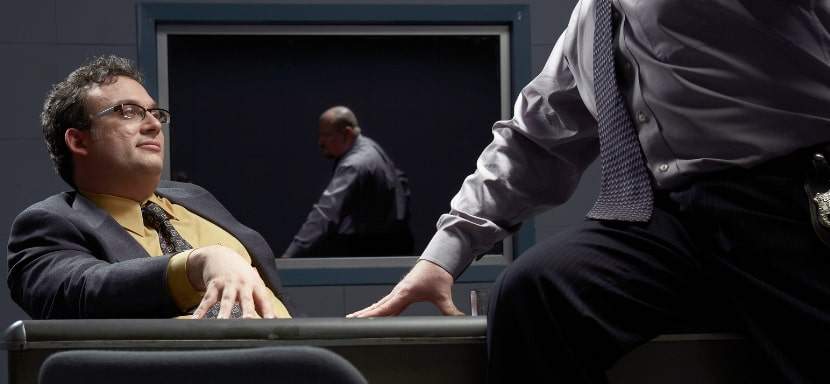
How to Survive an Interrogation
If you've ever been caught in the crosshairs of an overly enthusiastic mall cop or stared down by someone in a uniform with a clipboard and a glare, you’ve felt it — the chilly fingers of interrogation anxiety. And while most of us imagine interrogation scenes as...

How to Survive a Bachelor Party
A bachelor party is a delicate mix of celebration, chaos, and questionable decision-making, wrapped in the noble intention of sending the groom off into married life with a night he’ll (hopefully) remember. It’s a ritual as old as time—well, as old as men deciding...

How to Survive Your First Time at the Gym
Walking into a gym for the first time can feel like stepping into an alien world. The machines hum with purpose, the regulars move confidently, and you’re left standing there, clutching your water bottle, wondering whether you’re in the right place—or on the right...
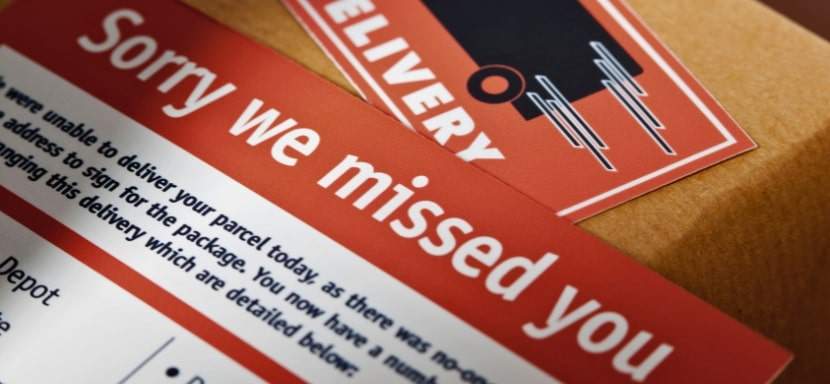
How to Survive a Missed Package Delivery
Life throws curveballs. One moment, you’re eagerly waiting for your package like a kid on Christmas morning, and the next, there’s a smug little note stuck to your door. A missed package delivery. It feels like a breakup letter from the universe. But don’t worry—I’ve...
More Survival Scenarios

How to Survive a Layoff
When the Floor Falls Out: The Reality of a Layoff Layoffs feel personal—even when they're not. One day, you're responding to Slack messages and forwarding emails. Next, you're staring at your monitor as it logs you out... for good. Whether it's a restructuring, a...

How to Survive a Drug Test
The Cup, The Room, The Truth I never imagined I’d be so emotionally invested in a paper cup. But there I was, standing under the fluorescent hum of a strip-mall clinic, trying to recall the last time I ate a poppy seed bagel. That’s the thing about drug tests—they...

How to Survive an Interrogation
If you've ever been caught in the crosshairs of an overly enthusiastic mall cop or stared down by someone in a uniform with a clipboard and a glare, you’ve felt it — the chilly fingers of interrogation anxiety. And while most of us imagine interrogation scenes as...
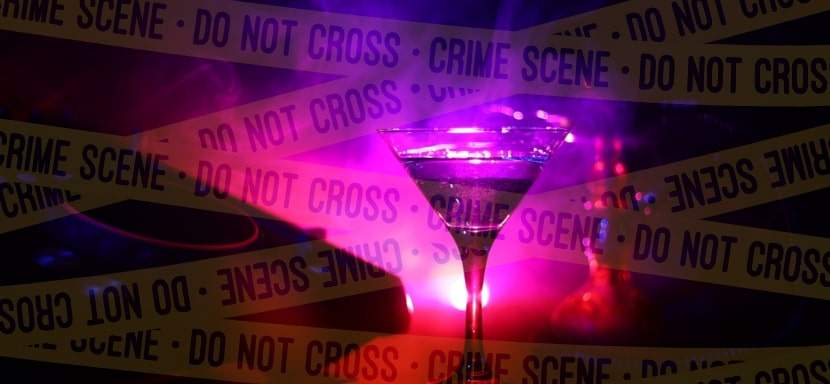
How to Survive a Nightclub Shooting
Nightclubs pulse with life—lights flashing, music pounding, bodies packed tight on the dance floor. It’s a place to escape, feel the rhythm, and lose yourself in the crowd. But that same energy can turn deadly in seconds, transforming a night of fun into one of the...

How to Survive a Bachelor Party
A bachelor party is a delicate mix of celebration, chaos, and questionable decision-making, wrapped in the noble intention of sending the groom off into married life with a night he’ll (hopefully) remember. It’s a ritual as old as time—well, as old as men deciding...

How to Survive Your First Time at the Gym
Walking into a gym for the first time can feel like stepping into an alien world. The machines hum with purpose, the regulars move confidently, and you’re left standing there, clutching your water bottle, wondering whether you’re in the right place—or on the right...

How to Survive a Worldwide Communications Breakdown
Imagine waking up to silence. Your phone doesn’t buzz, your email won’t load, and even your local radio station crackles with static. A worldwide communications breakdown has hit. What next? For many, this doomsday scenario may sound like the opening lines of a...
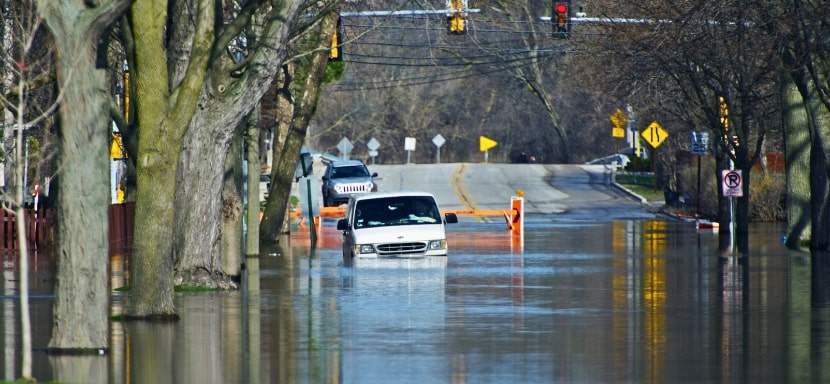
How to Survive a Flash Flood While Driving
Surviving a flash flood while driving requires quick thinking, calmness, and a solid plan to ensure your safety. Preparation can make all the difference between a close call and a catastrophe in emergencies like this. This guide provides practical advice to protect...
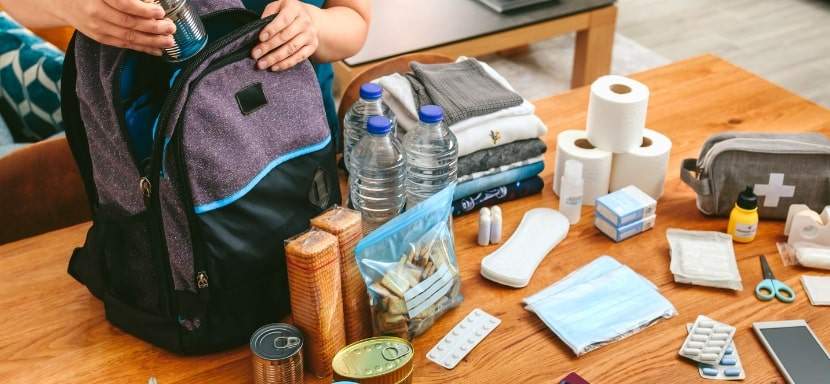
How to Build an Emergency Kit
Emergencies don’t knock politely at the door. They barge in, uninvited, like a distant relative with a penchant for drama, turning your world upside down without warning. Whether it’s a power outage, a natural disaster, or an unexpected evacuation, the key to staying...

How to Protect Yourself From Insects in the Wild
There’s nothing like being out in the wild—birdsong echoing through the trees, the fresh scent of earth, and a deep sense of peace that makes you think, “Ah, this is what life is about.” But then comes the buzzing. Mosquitoes, ticks, and flies swoop in like uninvited...
